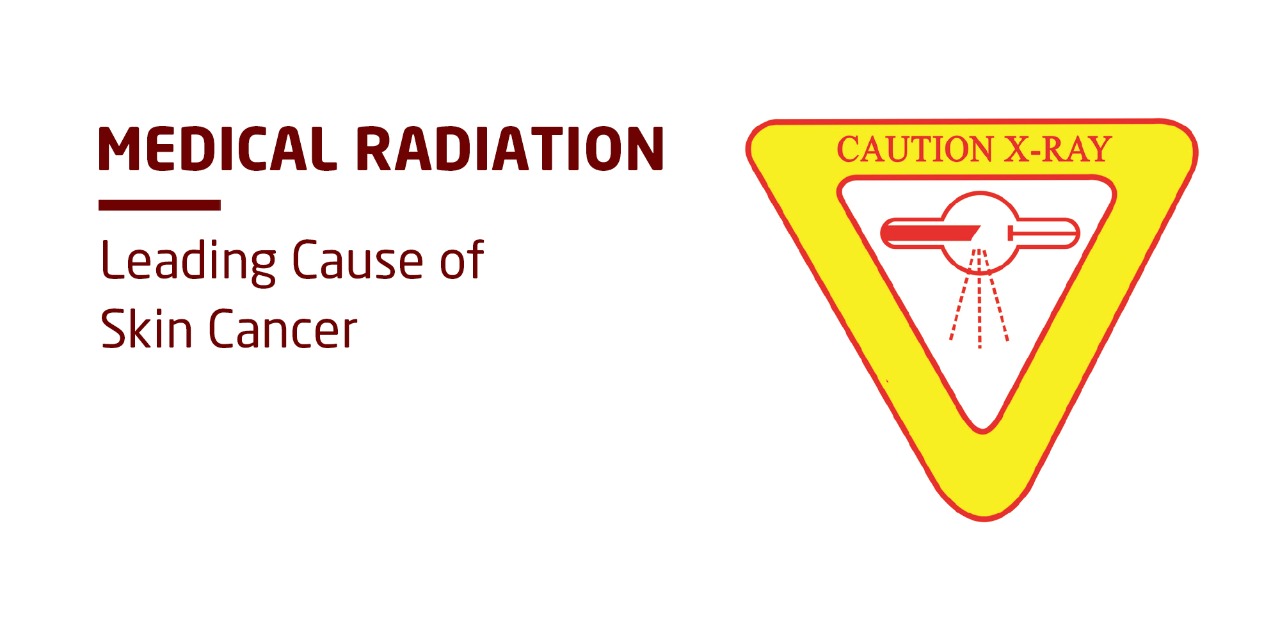Skin cancer, referring to the unusual growth of skin cells, is a serious skin concern that majorly is of three types: basal cell carcinoma, squamous cell carcinoma, and melanoma. Many risk factors can make a person more likely to develop skin cancer. These risk factors do not directly cause skin cancer but can be a culprit for influencing the development of cancer. One of the risk factors of skin cancer that is talked about on this page is the exposure of the skin to harmful radiation.
How Radiation Exposure Leads to Skin Cancer?
When our skin is frequently exposed or overexposed to radiations coming from direct sunlight or artificial sources used in some surgeries or therapies, the melanocytes of the skin are stimulated to produce more melanin. The radiations damage the skin, the skin cells, and the DNA within the skin cells. As the damage is caused to the skin cells and their genetic make-up, there is an increased risk of such cells dividing uncontrollably and infiltrating and destroying the normal or healthy body tissues. This abnormal development of the skin cells is termed skin cancer. The types of skin cancer are named based on the cells getting damaged i.e. basal cells, squamous epithelial cells, or melanocytes.
How Can Surgeons Protect Themselves from Skin Cancer Caused by Radiation?
In the medical departments, the doctors or surgeons may need to deal with radiation daily till they continue their practice. For over a century, medical specialists have been diagnosing and treating multiple diseases with radiation. Although, the progress in the use of nuclear medicine has been impressive for the past many years the harmful effects of radiation are still experienced by living creatures
During the medical examinations, scattered or secondary radiations are used. The radiation effects can be minimized in the following ways:
- Reduction of the Radiation Dose as well as the Duration of the Exposure: The medical experts must stick to the ALARA (As Low As Reasonably Achievable) principle. Manufacturers of the medical equipment should allow the doctors to set or modify the radiation dose. Furthermore, while carrying out radiography, the doctors should try to click limited pictures to achieve detailed results of any medical investigation and avoid the necessity of repeating the procedure.
- Wear Radiation Protection Garments and Accessories: The medical specialists must work with radiation or go close to radiation only after wearing lead aprons, radiation-protective gloves, and safety glasses that shield the gamma rays or X-rays. These barriers create more distance between the human and the source of radiation, thereby blocking the exposure of radiation to the skin.
- Training of the Surgeons in Radiation Protection: Surgeons use radiation to perform various procedures in operation theatres or fluoroscopy rooms. For treatments, higher radiation doses are applied than that used for diagnostics. Thus, every health professional must be aware of the safe and effective use of radiation in medicine. They must be well-informed about the general principles of applying for radiation protection and the ill effects of performing any radiation work without protection.
Bringing the Best in Radiation Protection for Safety of Healthcare Professionals
Radiation Protection Shields
These innovative and multipurpose shields protect the body’s most delicate areas. Trivitron and Kiran’s Radiation shields, drapes, and barriers comes with high ergonomic safety features to prevent dispersed radiation in conventional and speciality diagnostic procedures that help shield the doctor and their patients from harmful medical radiation.
Radiation Protective Aprons
With Kiran’s extensive selection of radiation protection products, picture quality and safety are never compromised. Trivitron and Kiran’s portfolio is comprised of distinct materials, each tailored for a certain use. In addition to producing X-ray Cassettes, Kiran also manufactures Radiation Protection Accessories, such as Radiation Protection Aprons, Shields, and Skirt Vests, and Disposable Radiation Protection Gloves.
Radiation Safety Eyewear
The eyewear offered by Trivitron and Kiran is meant to shield the delicate human eye from radiation. Finely milled European glass absorbs 99% of radiation, while the eyewear’s lightweight, moulded frame makes it easy to wear for extended periods. Globally, healthcare workers rely on Kiran for high-quality radiation protective eyewear.

